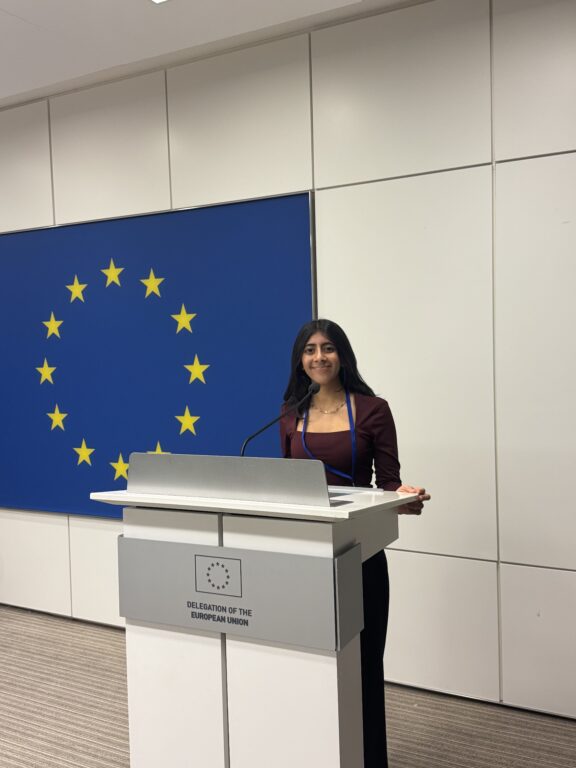By: Connor Joyce
The international community at large has failed to address one of the most critical human issues of our time, gender apartheid. Gender apartheid is the process of social and economic discrimination against individuals based on their gender.
Women across the world have suffered under the affliction of discrimination for centuries and the modern era is no different.
In America, females from all backgrounds have legal protections under the 19th Amendment for voting and carry equal civil rights to their male counterparts. Domestically, an argument for gender equality can be made concerning reproductive rights and equal pay, “on average, women working full time, year-round are paid 83.7% of what men are paid.”
However, beyond our nation’s territorial borders, gender apartheid is a significant issue in that impacts millions of women and girls.
Globally, over 50% of females are discriminated against attaining employment. Biased legal statutes in “104 counties” restrict “2.75 billion women worldwide” from pursuing careers in the industry, energy, mining, and agriculture sectors.
Eighteen of these nations legally allow males to prevent their spouses from working. In addition, “123 countries” are void of any sexual harassment laws in education, and in 59 countries, sexual harassment in the workplace is legal.
Beyond devastating gender discrimination in the workplace, 15 nations legally mandate women to “obey” their husband’s commands. Twenty nations protect rapists from legal action if they marry their female victims in a process called “marry your rapist.”
The United Nations International Children’s Emergency Fund estimates that approximately “650 million girls and women alive today were married as children.”
The World Health Organization also estimates that over “230 million girls and women” have suffered from genital mutilation across 30 nations.
Resisting change, countless countries around the world are publicly “waging a ‘war on women’ to punish defiance.”
Protests around Iran have met harsh government violence following the cruel murder of Mahas Amini for not wearing a hijab. In the Iranian human rights protests, officials have arrested more than “22,000″ dissenters and killed more than “500 people.”
Human rights activist and author Yasmine Mohammed has detailed her own experience, stating that forcibly wearing a niqab “… suppresses your humanity entirely. It’s like a portable sensory deprivation chamber, and you are no longer connected to humanity. You can’t see properly. You can’t hear properly. You can’t speak properly … You’re no longer part of this world …”
Globally, females must be given the freedom to wear or not wear niqabs, hijabs, burkas, chadors, and dupattas without repercussions from others. Discrimination begins when the freedom to choose when and what to wear is taken away and instead mandated.
The act of honor killings is also prevalent throughout the world. Under the Taliban rule, Afghanistan has reinitiated stoning females to death as a form of honor killing. In Pakistan alone, hundreds of females are murdered a year by family members in honor killings.
Demonstrating the widespread brutality of this form of gender apartheid, the United Nations estimates that 5,000 women and girls are murdered each year from honor killings.
In America, the U.S. Department of Justice estimates that “23-27 honor killings” occur per year, and 91% of honor killing victims are claimed to be murdered for being “too Westernized.”
Global gender apartheid should be as concerning as the genocides of Uyghurs in China, the Rohingya in Myanmar, and Christians in Nigeria.
Just as the crisis above, gender apartheid also violates the egalitarian principles outlined in not only the U.S. Declaration of Independence and U.S. Constitution, but, also the U.N. Declaration of Human Rights: “All human beings are born free and equal in dignity and rights… Everyone is entitled to all the rights and freedoms… without distinction of any kind … [including] sex …”
It is imperative that nations around the world work to make gender discrimination an international crime that extends beyond the International Criminal Court’s Rome Statute. As countries around the world act on liberal governing principles, it is crucial not to spread myths and misinformation on what amounts to gender apartheid.
No matter citizenship, race, religion, sex, or theology, every person deserves equitable human rights and should not be judged solely on their unique biological or character traits.
Connor Joyce is an intern in the World Affairs Council of Harrisburg’s summer program of the World Affairs Council of Harrisburg and sponsored by PennLive and The Patriot-News.
You can read the original article published by PennLive here.




